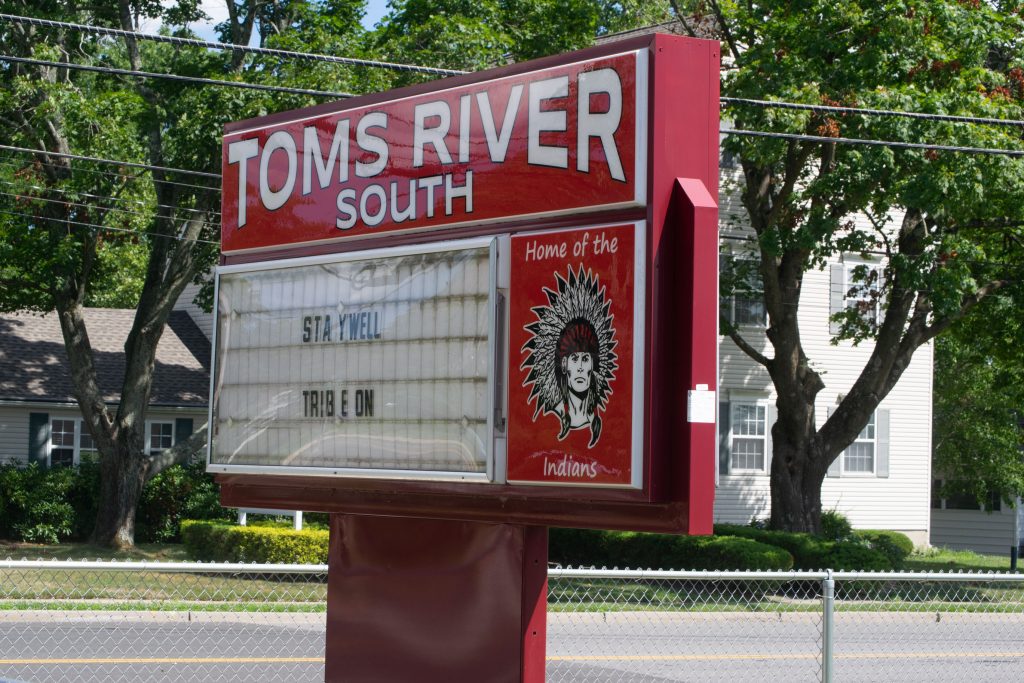Toms River Regional schools superintendent Michael Citta said he could “scare the Dickens” out of residents by listing the potential consequences of the state’s proposed $14.4 million cut in funding for the district, but instead is hoping to work with state officials to convince them of the reality of what the cut would mean.
“You can imagine a school district that has no extras, no frills, no additives, no preservatives – and you could speculate on all those types of things,” he said at a meeting of the Board of Education’s finance committee Wednesday night. “But we will not be doing that in this budget process. We will not cut programs for kids.”
School officials are still processing the state’s proposed funding cut. Business Administrator William Doering said the state’s formula now indicates residents of the towns making up the regional school district pay too little in property taxes to support their school system. As funding decreased, the formula found that Toms River residents are underpaying by $31 million – a number that is “untenable.”
Even if the district were to increase property taxes by the maximum allowed by law – 2 percent – it would take a staggering 19 years to reach what the state considers adequate.
“The driver behind it was really the increase in the equalized valuations for the aggregate of the four towns,” Doering explained.
While the income of local residents decreased over the last year, the state calculated that property wealth increased by 20 percent in a single year, compared with 11.1 percent for the average New Jersey municipality. The value of property is one of the figures utilized in the state’s formula to calculate how much residents should, theoretically, be able to afford to support their schools. State funding is then cut as that gulf widens.
“There isn’t any fat left to trim,” said Citta, speaking of a district that has eliminated positions measured in triple digits over the last five years, while another 90 jobs, approximately, are being funded through federal pandemic-era grants that will eventually expire.
Even if the Board of Education wanted to raise taxes by asking residents to exceed the 2 percent cap in a referendum, it cannot do so, said Doering. Referendum votes cannot be utilized to fund operating budgets – only capital projects and long-term expansions and upgrades.
A part of the district’s strategy to counter the funding cut from Trenton may come down to an argument that states the district would simply not be able to afford to provide students with a “thorough and efficient” education, as guaranteed by the state constitution. Citta plainly stated as much, and rumblings from officials outside of the school district have pointed to legal action that could take place in the absence of funding being restored.
“We’re talking about a number of options, but quite frankly, we’re running out of options,” said Mayor Maurice “Mo” Hill.
Hill has no authority over the school budget – the district and municipal governments cannot commingle money between different entities – but fumed over the cuts at a township council meeting Tuesday night.
“It’s rewarding Democratic communities in Essex County by punishing Republican communities in Ocean County,” said Hill, of the state’s proposed school funding plan. “It’s dividing the state in half. I’m too old to be political correct – it’s B.S.”
In Ocean County, 19 out of 32 school districts saw reductions in state funding despite the county being the fastest-growing in the state. Citta said Toms River Regional boasted the third-lowest per-pupil spending rate of any New Jersey district with 3,500 or more students.
“Toms River taxes less because we spend less,” he said, noting that the two districts that spent less than Toms River – Edison and Nutley – both received increases in state funding under Gov. Phil Murphy’s proposed budget this year. With that, Toms River is expected to take the top spot in the list of the most efficient districts statewide.
“You can’t help but think they’re trying to bankrupt our schools,” said Councilman Matthew Lotano. “You can’t help but to feel like our kids are being used as political pawns.”
The outcry from officials has caused some in the state legislature to take notice. Citta said he exchanged e-mails with Sen. Vin Gopal (D-Monmouth), chairman of the Senate Education Committee, and while no figures were discussed, the gravity of the issue seemed to have been understood.
“I don’t know if there’s anything else, more that can be said tonight,” said Citta, at the close of the committee meeting. “I ask for everybody to give us patience, to give us prayers, to give us encouragement and to stand by, because there isn’t any avenue that we won’t travel down to stay this course to make sure that revenue side of our budget gets corrected.”


Police, Fire & Courts
South Toms River Man Charged in Violent Murder of Wife

Police, Fire & Courts
Toms River Man Sentenced to Prison for Assault, Eluding, Robbery, Threats








